Key takeaways
For years now, corporate intrapreneurs across almost every industry have been helping their organisations innovate from within, leverage their assets effectively and accelerate growth in unprecedented ways. Case in point, BASF’s business incubator, Chemovator.
But what is a corporate intrapreneur?
In a nutshell, intrapreneurs are employees that have all the makings of an entrepreneur. Instead of developing independent ventures, they use their entrepreneurial superpowers to build businesses under a parent company, boosting the broader corporate agenda.
Corporate incubators like Chemovator foster intrapreneurship by providing a space for it to grow and succeed, away from everyday corporate restrictions and bureaucracy. This empowers and engages employees, building an environment where:
- Creativity and leadership are rewarded
- Talent, experience and industry know-how translate into new assets
- Innovation is facilitated with the right tools, guidance and resources
Let’s take a closer look at how Chemovator is helping BASF create a culture of innovation, engage employees and turn promising ideas into new revenue streams.
About BASF
Headquartered in Ludwigshafen, Germany and founded in 1865, BASF is the leading chemical company in the world in terms of revenue. Its portfolio includes a variety of chemical products divided into six main segments:
- Chemicals, with subdivisions: Petrochemicals and Intermediates
- Materials with subdivisions: Monomers and Performance materials
- Industrial Solutions with subdivisions: Dispersions & Resins and Performance Chemicals
- Surface Technologies with subdivisions: Catalysts and Coatings
- Nutrition & Care with subdivisions: Care Chemicals and Nutrition & Health
- Agricultural Solutions (e.g. herbicides, insecticides and seed treatment products, etc.).
With about €59 B in generated sales for 2020 and 110.000 employees worldwide, BASF is on a mission to “create chemistry for a sustainable future”.
Innovation is a large part of the corporate strategy at BASF; as stated on the company website:
“We develop sustainable innovations for our customers in almost all sectors of industry. Every day, we bring together the experience and unique expertise of our employees, our ventures and our partners from science and business. And it is optimism for the future that drives us to do so….”
In 2018, BASF founded its own corporate incubator, Chemovator, to provide employees with a protected space to bring their disruptive ideas to life.
Meet Chemovator
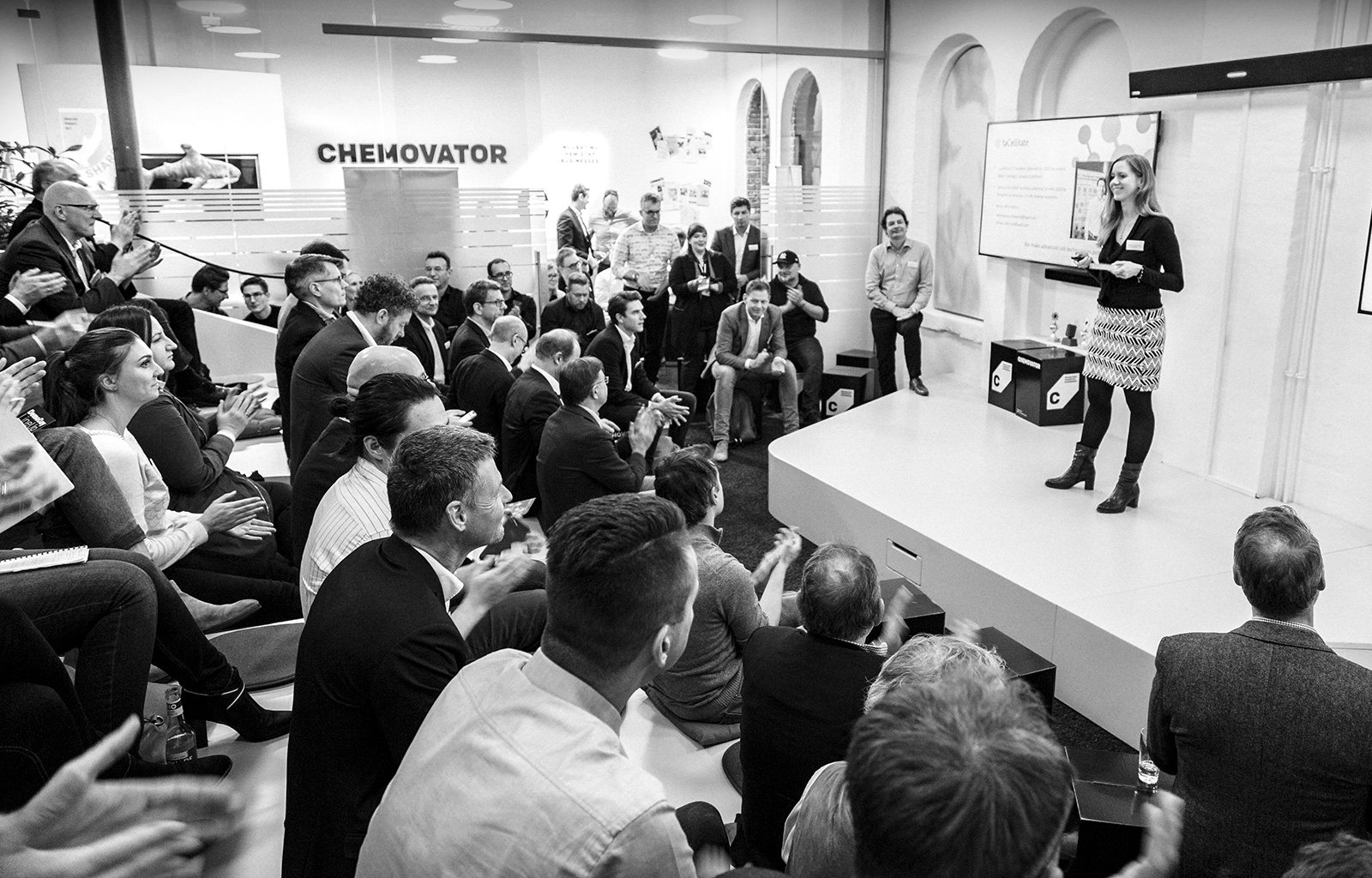
Chemovator provides a safe environment for BASF employees to develop, validate and launch promising new ventures. It’s a place where “unconventional” and out-of-the-box products, business models and solutions can be tested and put into the market with the proper guidance, resources and expertise.
As described on the website, Chemovator has a three-point mission to help BASF:
- Test early-stage business ideas and explore unconventional growth opportunities.
- Build low-risk; investable business plans to internalise or become spin-off companies.
- Build new ventures with speed, using lean methods and customer-focused techniques.
Here are just some of the ways Chemovator supports its venture teams:
- Creating an environment that is protected from everyday corporate regulations.
- Teaching teams how to “fail-fast” and see mistakes as learning opportunities.
- Providing operational support so venture teams can concentrate fully on venture development.
- Enabling teams to use lean validation and customer feedback to validate their ideas.
- Providing experienced external founders and investors to mentor venture teams.
- Using BASF industry expertise and external networks to move ventures forward.
As explained by the Head of Chemovator Markus Bold:
“There are many resourceful minds among BASF employees who have promising innovative business ideas. We support these colleagues in introducing their new products, digital business models or comprehensive complete solutions to the market quickly and efficiently.”
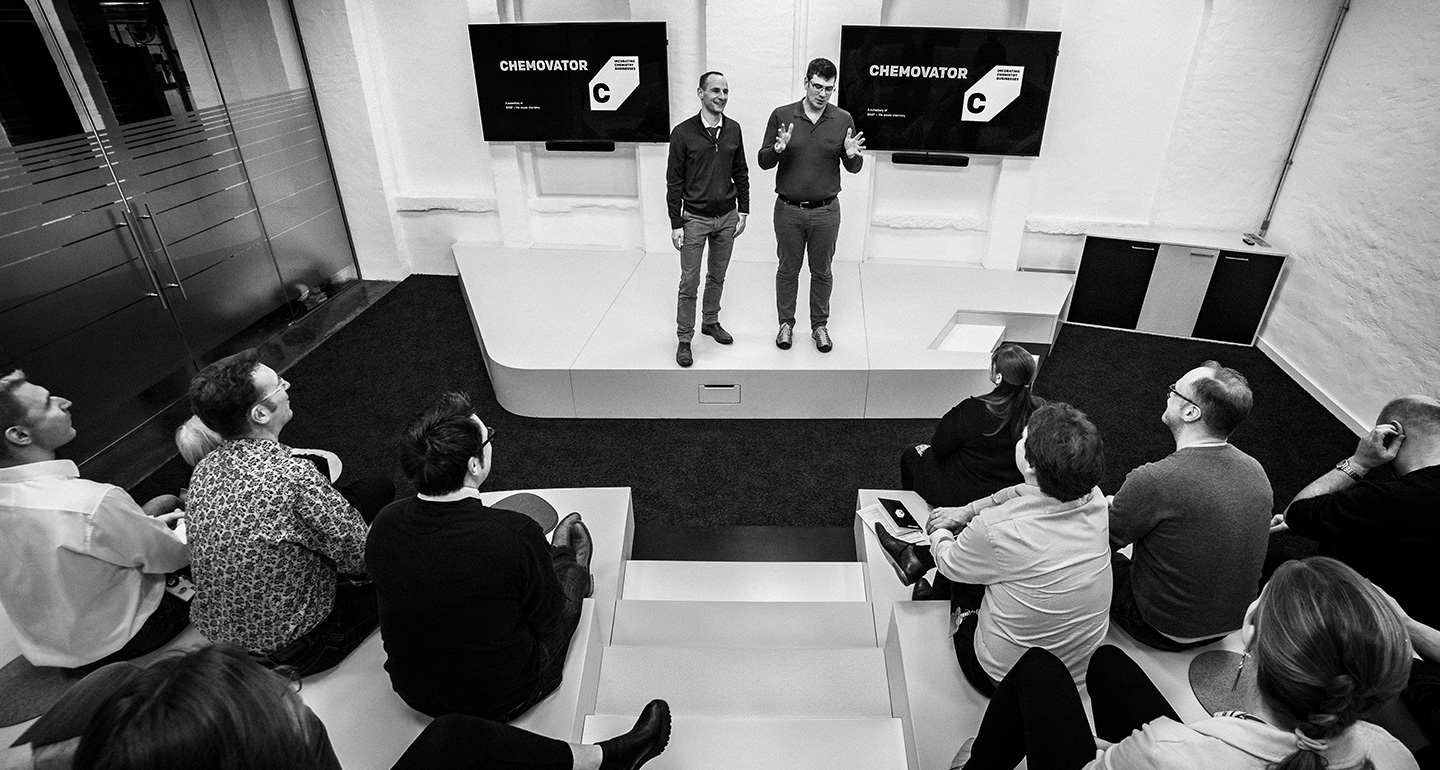
How Chemovator works.
Chemovator supports intrapreneurs that want to develop new ideas, starting from ideation all the way to successful commercialisation. Each team is made up of two to three intrapreneurs and supported by:
- Entrepreneurs in Residence - External experts with proven entrepreneurial experience that provide guidance, networking opportunities and mentoring from the application phase till the launch of the venture.
- The core team - They run the incubator and provide operational support at every step of the intrapreneurial journey, allowing new founders to concentrate on developing their ventures.
The program takes two years to complete and supports up to 12 venture teams at a time. Here’s a brief outline of what their venture development journey looks like:

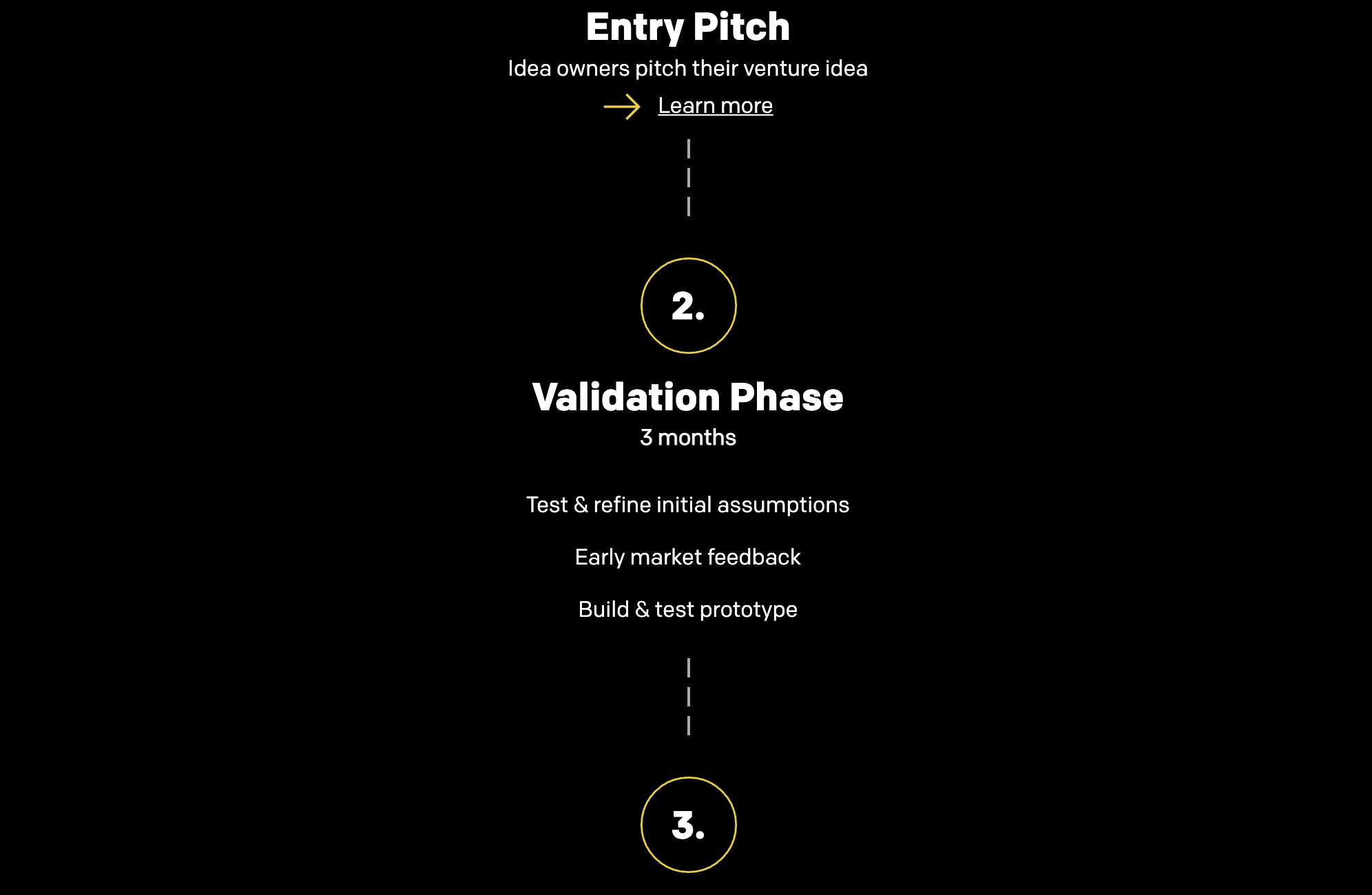
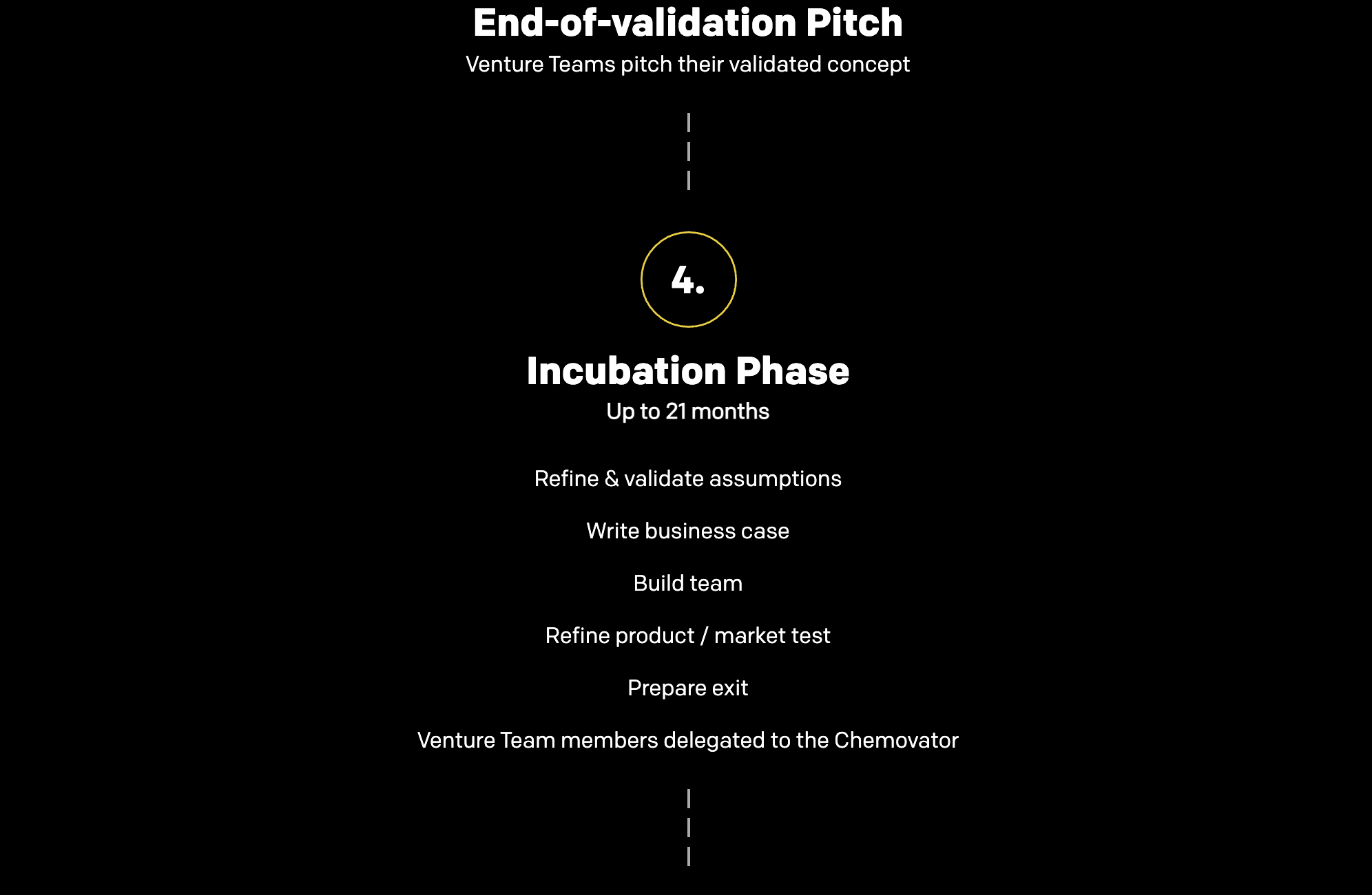
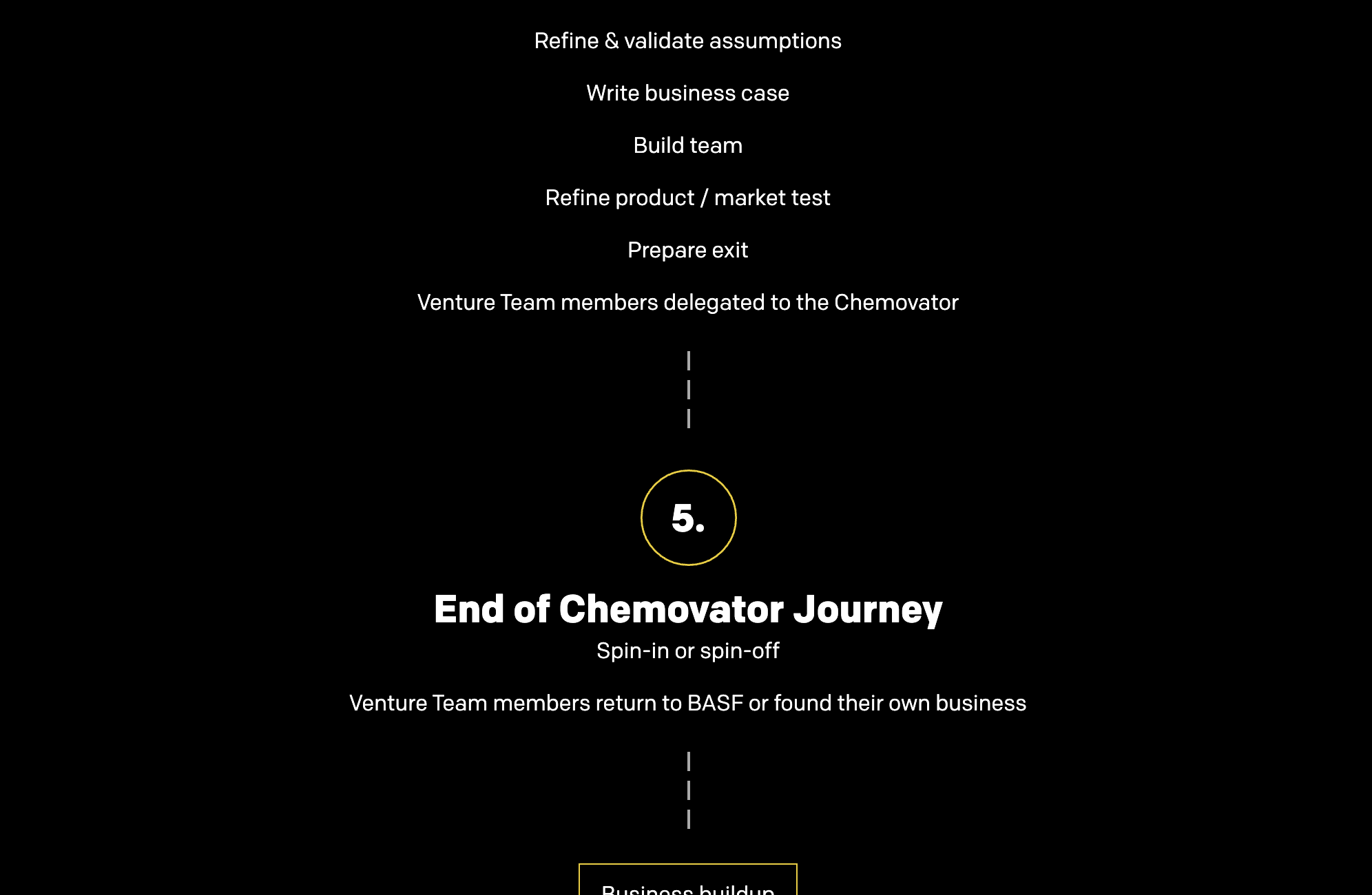
Entry pitches and demo days are used to review new initiatives and decide which will be accepted into the program.

What makes Chemovator successful?
These are just a few of the factors that make Chemovator a success:
A protected environment
Corporate processes and bureaucracy often impede the innovative process, blocking disruptive ideas from getting developed and slowing the process with too many regulations. Chemovator provides intrapreneurs with a protected space to develop their ideas free of typical corporate setbacks.
Corporate assets
New ventures developed at Chemovator enable BASF to effectively leverage corporate assets like partnerships, networks, infrastructure, industry know-how and funding.
Empowering intrapreneurs
Employees are one of the most valuable assets a corporation can have. By empowering its employees to develop projects they’re passionate about, BASF is engaging its staff and making the most of their talent, expertise and industry knowledge.
An effective support structure
Chemovator provides its venture teams with a support system of:
- External entrepreneurs with proven experience
- An internal core team with years of BASF experience
This combines knowledge and expertise from both in and outside the parent company, culminating in a venture program with the best of both worlds.
Independent but not disconnected
Being independent but remaining connected enough to complement the parent company is crucial to the success of any corporate incubator. As explained by Venture Creation and Program Strategist, Björn Heinz:
“We needed to find this fine balance between ‘This is really different,” but at the same time, we appeal to someone in BASF and kind of help them understand how we can help bring their idea and their business to life.”
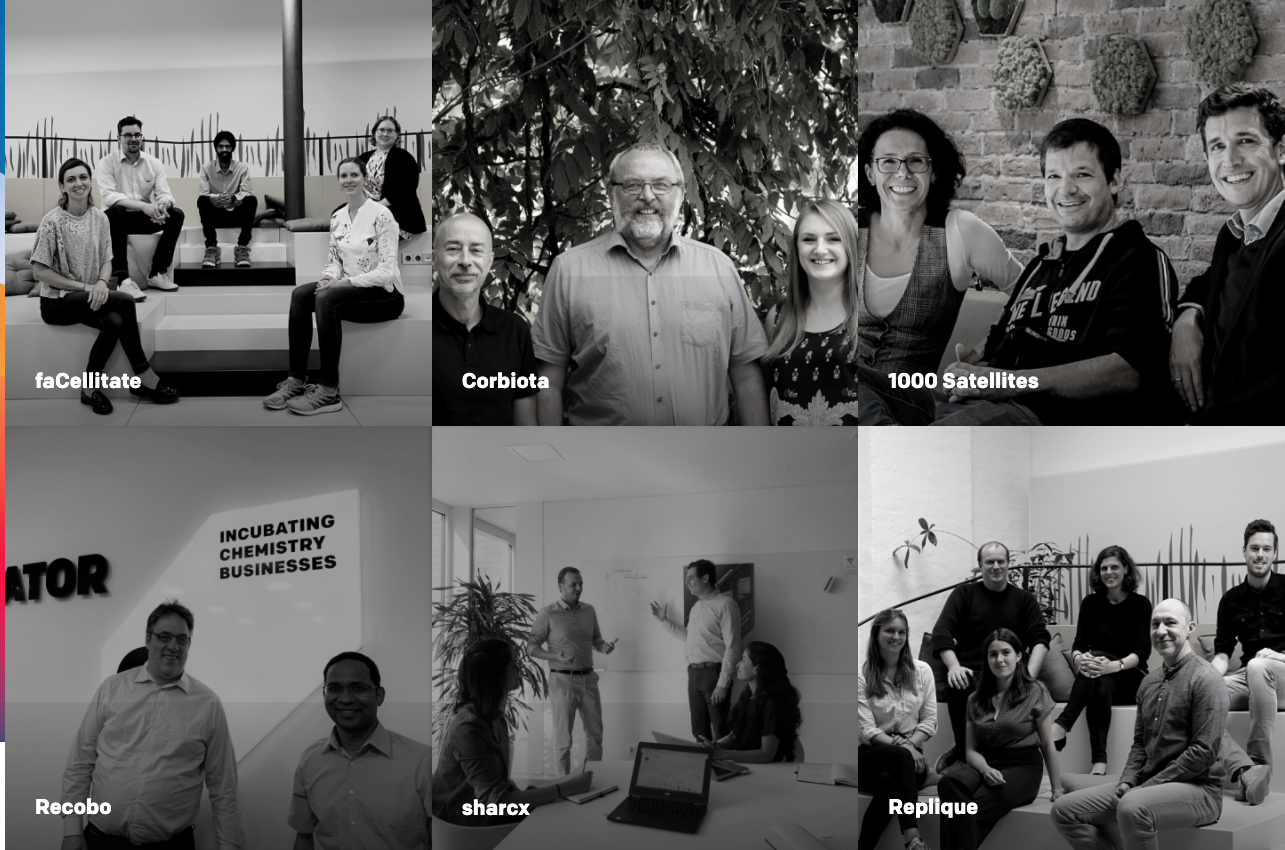
What’s next for Chemovator?
Chemovator is still going strong in its mission to help BASF employees develop ideas with disruptive potential. Their next Entry Pitch day has already been announced for this coming September, and the Chemovator Demo Day has been scheduled to take place a month after that.
In April, Chemovator announced its first successful corporate spin-out, BOXLAB Services GmbH. Founders and former Chemovator alumni Mischa Feig and Lisa Raschke, are currently heading the spin-out, which features an app that helps highly regulated industries replace damaged packaging within 24 hours. The service, which significantly decreases delays in the delivery process and gets products to customers promptly, already has a customer base of over 70 warehouses in ten countries. One of the customers is, of course, BASF itself.
As explained by Feig:
"Our aim is to make logistics processes more efficient and sustainable and to avoid the disposal of undamaged products due to damaged outer packaging,"
According to a recent BASF blog article, seven additional Chemovator teams are currently working on exciting new B2B initiatives. With ventures like faCellitate, Corbiota and Replique in the works, the possibilities are seemingly endless, and we can’t wait to see what they’ll launch next!
____
Corporate venturing is a proven strategy to boost innovation, accelerate growth and build new revenue streams. We can help you harness the power of your unique corporate assets to create a pipeline of profitable ventures that will future proof your business for years to come.
60 Corporate Incubators Shaping Our Future
Discover how top corporations use incubators to drive innovation and unlock new revenue streams.








